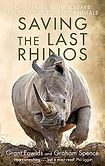.png)

.png)
Project Rhino is a rhino-focused association that brings together a provincial government conservation body, private and community-owned reserves, rhino owners, leading conservation NGOs and anti-poaching security specialists in the common aim of fighting wildlife crime.
Together with South Africa’s Kruger National Park, Project Rhino member reserves are collectively responsible for the protection of the world’s largest rhino population; as well as the most genetically diverse white rhino population. Devastatingly, our rhino have become a target for highly organized poaching rings and crime syndicates, fuelled largely by an ongoing and unfounded demand by traditional Eastern medicine. Rhino numbers have plummeted – more than 8,000 have been lost in RSA in the last decade – whilst the costs of keeping the remaining populations safe have increased astronomically.

Project Rhino Initiatives Range From Urgent Anti-Poaching And Wildlife Crime Interventions, To A Long-Term Outlook Focused On Developing Empowered Communities Who Own, Manage And Protect The Conservation Economy.
FOUR PILLARS OF PROJECT RHINO'S FOCUS:

Co-ordination Unit:
The team that keeps the engines running: 1) mobilising stakeholders; 2) gathering and synthesising anti-poaching intelligence; 3) prioritising needs; and 4) sourcing funds and donations. Without effective coordination, we would see a disjointed and dysfunctional response to wildlife crime – resulting in higher poaching numbers.
Ranger and Technical Support:
Direct training equipment support to rangers, anti-poaching technologies, dehorning interventions, equipping and supporting the K9 and Equine units, and the ZAP-Wing aerial surveillance unit, including the lease and support costs of the airfield at Hluhluwe, northern KZN.



Wildlife Youth & Leadership Development:
Interaction and education of youth and wildlife communities through Rhino (Wild) Art, Youth Camps, Leadership Forums, World Youth Wildlife Summit and others. Helping to build our current and future conservation champions through supportive platforms.
Conservation Economy and Enterprise:
Supporting livelihoods by building a network of responsible use landscapes that provide opportunities for local job creation and small business development, including permaculture food gardens.
Meet Project Rhino Ambassador: GRANT FOWLDS
Grant Fowlds is a passionate Conservationist from a dedicated Rhino Family, who pioneered with others a wildlife project called Amakhala Game Reserve – now a leading Tourism brand based in the Eastern Cape, South Africa. As an ambassador for Project Rhino and speaker, he has spread the word to an audience in several countries including consumer countries of South East Asia.
As an African linguist, Grant shares the vision of African Explorer Kingsley Holgate to reach one million youth in community conservation for rhino, elephants and gorillas as well as other endangered species in a simple art project in schools. He has been working in rural communities throughout Southern Africa in human wildlife conflict, demand reduction and alternate sources of income via tourism and building range expansion parks. Recently, as COVID-19 lockdowns continue to impact rural food security, he has driven the Feeding the Wildlife Communities humanitarian movement alongside environmental partners like Nkombe Rhino and the Kingsley Holgate Foundation.
Together with Graham Spence, Grant has written two incredible books about his experience in the field.




